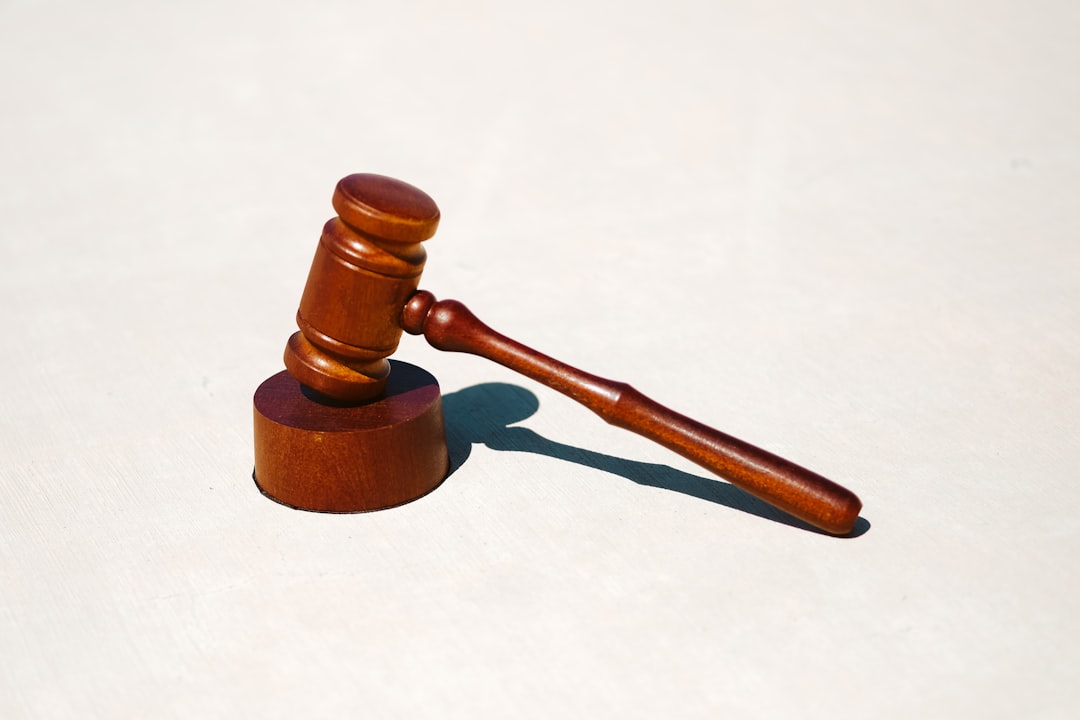In Connecticut, automated or unwanted phone calls are illegal. If you've received such calls from telemarketers, debt collectors, or political campaigns, a specialized unwanted call lawyer or attorney is crucial to protect your rights and stop harassment. These legal professionals navigate consumer protection laws, file complaints, and pursue legal action against offending parties. Evidence collection, including call records and recordings, is essential for building a strong case. Choose an experienced lawyer specializing in telecommunications law and Connecticut's consumer protection acts. Legal recourse can result in substantial damages for emotional distress and privacy invasion caused by robocalls.
In today’s digital era, robocalls have become a ubiquitous yet nuisance-filled aspect of daily life. Connecticut residents now face a surge in automated calls, often violating consumer privacy laws. If you’ve exhausted efforts to stop the deluge, understanding your legal rights and options is crucial. This guide navigates the complex landscape of unwanted call lawyer Connecticut services, detailing eligibility, evidence gathering, choosing the right unwanted call attorney Connecticut or unwanted call law firm Connecticut, and the legal process behind filing a lawsuit against robocallers. Learn about potential damages and relief available to victims.
- Understanding Robocall Violations in Connecticut
- Eligibility for Legal Action: Who Can Take Action?
- Gathering Evidence and Documenting Unwanted Calls
- Choosing the Right Unwanted Call Lawyer in Connecticut
- The Legal Process: Filing a Lawsuit Against Robocallers
- Potential Damages and Relief Available to Victims
Understanding Robocall Violations in Connecticut
In Connecticut, robocall violations refer to automated phone calls made without the consent of the recipient, often known as “unwanted calls.” These calls can be from telemarketers, debt collectors, political campaigns, or any organization using automatic dialing systems. The Connecticut Unfair Trade Practices Act and the Telephone Consumer Protection Act (TCPA) protect consumers from such unwanted calls. If you’ve received a robocall in Connecticut and feel your rights have been violated, consulting with an unwanted call lawyer Connecticut or unwanted call attorney Connecticut is crucial. These legal professionals specialize in navigating the complexities of CT’s consumer protection laws to ensure you receive fair treatment.
Many unwanted call law firms Connecticut have experience handling cases related to telemarketing and robocalls, providing guidance on whether a violation has occurred and the best course of action. They can help you understand your rights under the law, file complaints with relevant authorities, or even pursue legal action against the offending party. Whether you’re dealing with persistent debt collectors or political robocalls, these unwanted call lawyers Connecticut are equipped to represent your interests and protect you from further harassment.
Eligibility for Legal Action: Who Can Take Action?
In Connecticut, anyone who has received an unwanted or fraudulent robocall has the right to take legal action against the caller. Eligibility for such action is not limited to individuals; businesses and organizations that have suffered similar infringements are equally protected by the law. If you’ve been disturbed or misled by a robotic voice on your phone, consulting with an unwanted call lawyer Connecticut or unwanted call attorney Connecticut can help determine if you have a case and guide you through the legal process.
Many unwanted call law firms Connecticut specialize in representing clients against these intrusive violations. Their expertise lies in navigating the complexities of consumer protection laws, ensuring that individuals and businesses receive fair compensation for their distress. By retaining such a lawyer or firm, you’re not only pursuing justice but also setting a precedent to deter similar incidents from occurring in the future.
Gathering Evidence and Documenting Unwanted Calls
When pursuing legal action against robocall violations in Connecticut, gathering evidence and documenting unwanted calls is a crucial step. As these automated phone calls are often illegal or misleading, it’s essential to keep a detailed record of each incident. Note down the date, time, and content of the call, including any specific information about the caller or their message. Save all call logs, texts, and emails related to the robocalls, as well as any evidence of disruption or harm caused by them. An unwanted call lawyer Connecticut or attorney can help guide you in collecting this evidence effectively.
Consider using tools like call-blocking apps or software that can log and identify spam calls. These digital records can serve as concrete proof of your experiences with robocalls, making it easier for a law firm specializing in unwanted call cases to build a strong case on your behalf. Don’t hesitate to involve an unwanted call law firm Connecticut; their expertise lies in navigating the complexities of these laws and ensuring you receive justice.
Choosing the Right Unwanted Call Lawyer in Connecticut
When pursuing legal action for robocall violations in Connecticut, selecting the right unwanted call lawyer is a critical step. It’s essential to choose an attorney or law firm with extensive experience and expertise in telecommunications law, specifically regarding unsolicited phone calls. Look for professionals who have successfully handled cases similar to yours, ensuring they understand the intricacies of Connecticut’s consumer protection laws.
Consider firms that offer a comprehensive approach, combining legal knowledge with a deep understanding of the impact these unwanted calls can have on individuals. A reputable unwanted call attorney or law firm in Connecticut should be able to provide tailored strategies, effectively communicate complex legal issues, and advocate for your rights while navigating the regulatory environment.
The Legal Process: Filing a Lawsuit Against Robocallers
When facing relentless robocalls, many Connecticut residents turn to an unwanted call lawyer or unwanted call attorney for help. The legal process begins by gathering evidence—such as call records and recordings—to substantiate the violation of Connecticut’s consumer protection laws. A seasoned unwanted call law firm in Connecticut will guide you through this process, ensuring that all necessary steps are taken to file a lawsuit against the responsible party.
Filing a complaint with the appropriate court is the next step. A lawyer or attorney from a reputable unwanted call law firm Connecticut can draft and submit the legal documents required for your case. They will represent you in court, argue your case, and fight for compensation if the robocalls have caused financial or emotional harm. With their expertise, they aim to hold violators accountable and secure justice for their clients.
Potential Damages and Relief Available to Victims
Victims of robocall violations in Connecticut may be entitled to significant damages and relief. Unwanted calls, often characterized by automated messages or live operators, can cause numerous forms of harm. These include emotional distress, invasion of privacy, and economic losses due to wasted time and resources. A unwanted call lawyer Connecticut, unwanted call attorney Connecticut, or unwanted call law firm Connecticut can help individuals pursue compensation for these damages.
Under Connecticut law, victims may be able to recover actual damages, such as the cost of any goods or services purchased in response to the calls, and punitive damages to punish the violator. In addition, the Federal Trade Commission (FTC) offers a safe harbor provision that allows consumers to seek up to $500 per violation, with an additional $1,000 for each violation if the court finds willful or knowing neglect. As unwanted call lawyers Connecticut and unwanted call attorneys Connecticut from reputable unwanted call law firms Connecticut can guide victims through this process, ensuring they receive the maximum relief available under the law.






